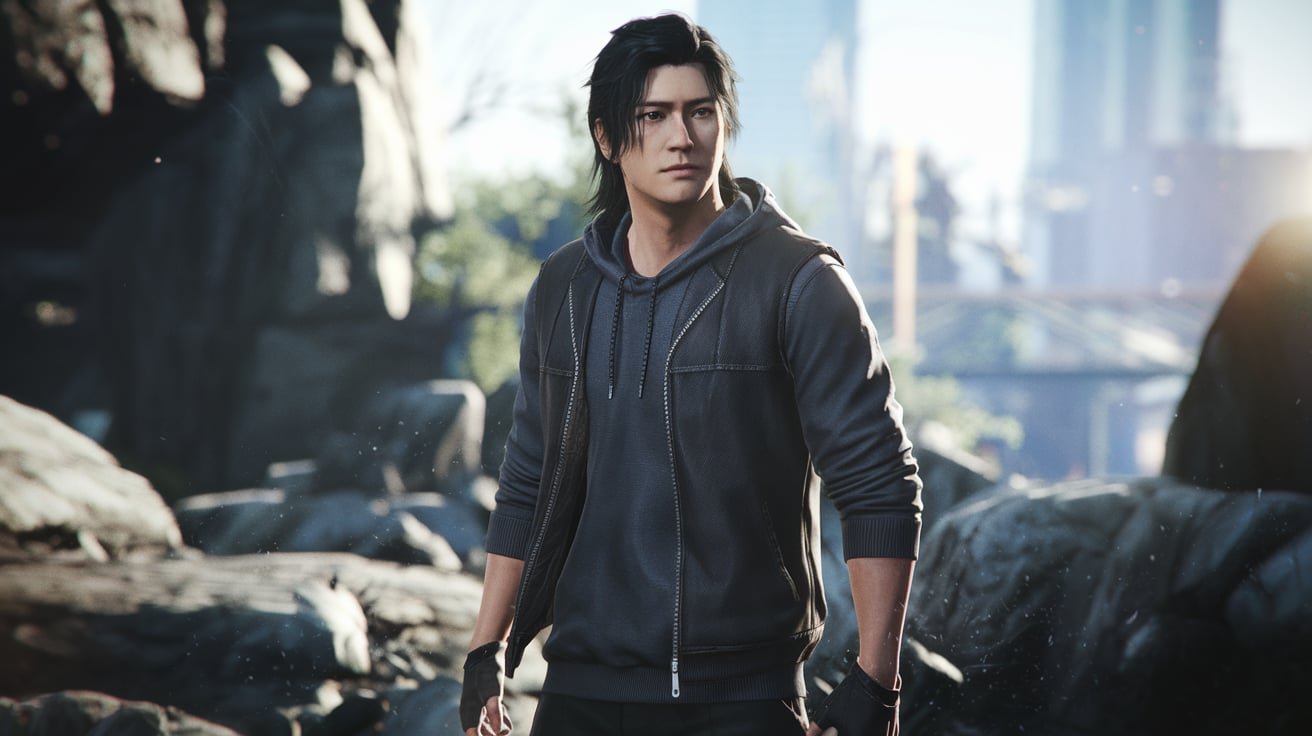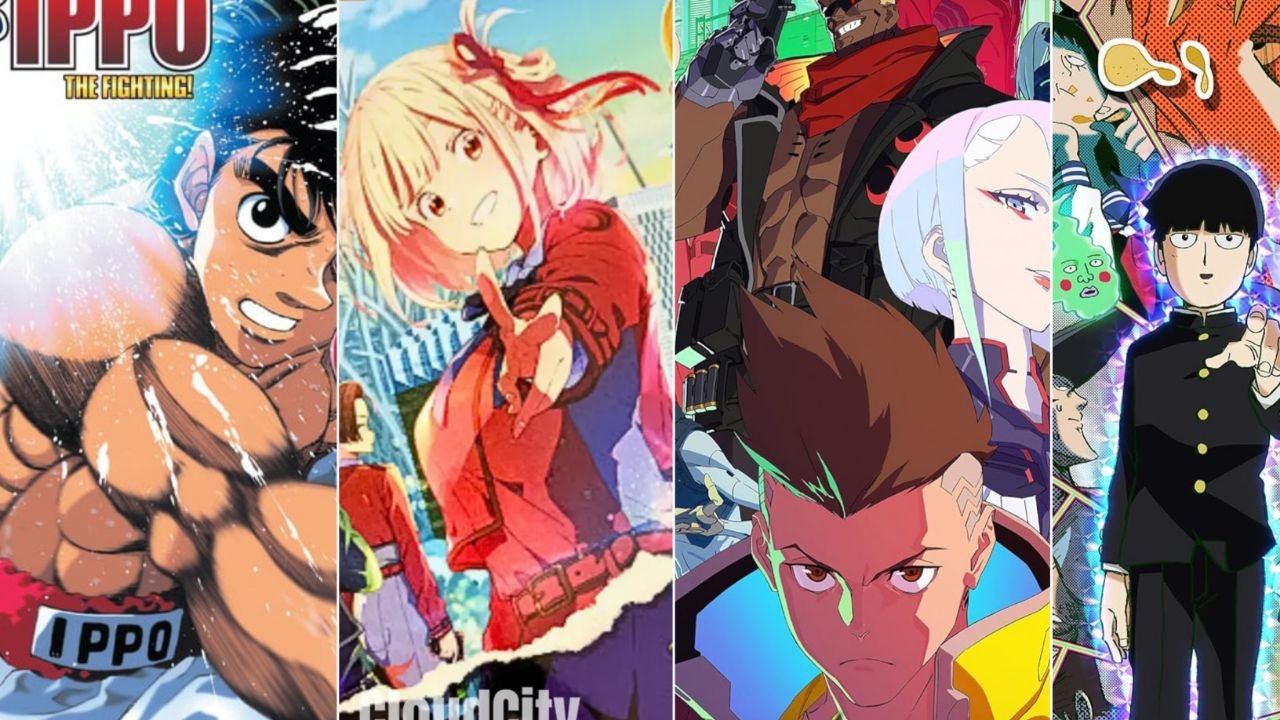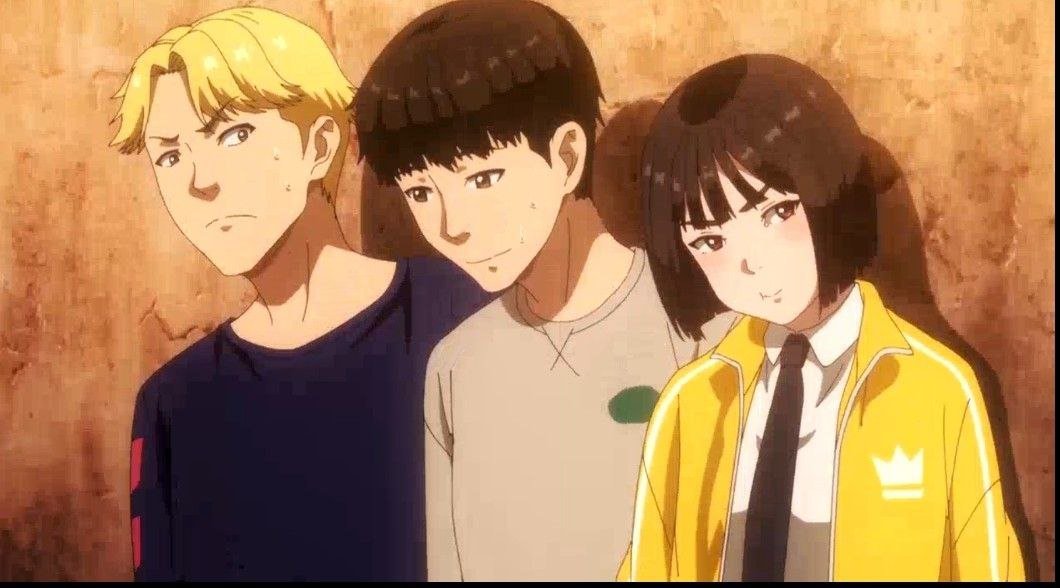Table of Jin Woo Father
Introduction to Solo Leveling and Sung Il-Hwan
Solo Leveling, a webtoon that has captivated the attention of readers globally, presents a riveting narrative set in a world where monsters and hunters coexist. The premise revolves around individuals known as ‘hunters,’ who possess unique abilities to combat formidable beasts emerging from mysterious dungeons. Among these hunters, the story’s protagonist, Sung Jin-Woo, embarks on a remarkable journey from being the weakest of his kind to becoming an unstoppable force. The enthralling theme of personal growth and the evolution of strength resonates throughout the series, drawing readers into its expansive universe.
Within this intricate world, the character of Sung Il-Hwan holds significant importance. As the father of Sung Jin-Woo, his influence extends beyond the familial bond; he serves as a powerful figure in both the narrative and in Jin-Woo’s development. Sung Il-Hwan, a renowned S-rank hunter, has left an indelible mark on the story through his legacy of strength and sacrifice. His role in the plot is multidimensional, encompassing the responsibilities of a father and the burdens of a legendary hunter. His disappearance initially sets the stage for Jin-Woo’s struggles and growth, defining the young hunter’s path toward uncovering the truth behind his father’s fate.
The dynamics of the Solo Leveling universe emphasize the significance of familial relationships, particularly the bond between Jin-Woo and Sung Il-Hwan. As the narrative unfolds, readers witness how the aspirations and ideals of Jin-Woo are shaped by the lingering presence of his father, ultimately driving him toward greatness. The exploration of this relationship adds depth to the character arcs, underscoring themes of perseverance, heritage, and the quest for power in a world fraught with danger. This foundational understanding of Sung Il-Hwan’s character is essential for appreciating the broader implications of his impact on Jin-Woo and the storyline as a whole.
The Character of Sung Il-Hwan
Sung Il-Hwan is a pivotal character in “Solo Leveling,” whose attributes significantly shape the narrative surrounding his son, Sung Jin-Woo. As an S-rank hunter, he represents the apex of strength and skill in a world teeming with danger and monsters. Physically, Sung Il-Hwan is depicted as an imposing figure, with a robust physique that signifies his years of battling monsters and honing his abilities. His stature not only highlights his power but also instills a sense of fear and respect among both allies and foes alike.
Beyond his physical attributes, Sung Il-Hwan’s personality is multifaceted. He exhibits traits of nobility and valor, often placing the safety of others above his own well-being. This heroic demeanor reflects the responsibilities that accompany being a father, instilling a sense of duty and protection in his actions. However, his journey as a war machine also reveals a darker side, wrought by the burdens of conflict and loss. Sung Il-Hwan’s experiences have molded him into a formidable hunter, but they also bear the weight of personal sacrifice, showcasing the high cost of power in a perilous world.
Moreover, his status as an S-rank hunter extends beyond mere physical prowess. The narrative portrays him as a tactical strategist, whose ability to assess threats allows him not only to survive but to excel in combat. His strength serves as both a shield and a sword, creating a legacy that will impact Sung Jin-Woo significantly throughout the series. The complexity of his character, forged through trials and tribulations, enhances the themes of duty, family, and sacrifice woven throughout “Solo Leveling,” creating a profound connection between Sung Il-Hwan and his son’s journey in the ever-evolving landscape of hunters.
Disappearance During a Raid
The disappearance of Sung Il-Hwan during a raid is an event that profoundly affects the narrative of Solo Leveling and shapes the character development of his son, Jin-Woo. Sung Il-Hwan was an A-Rank hunter, known for his skills and strategic approach to combat. However, his fate took a tragic turn during a perilous dungeon raid, where he vanished without a trace. This incident not only left a void in the lives of his loved ones but also created an emotional upheaval that resonated deeply, especially in his son.
As the family grappled with the loss of Sung Il-Hwan, Jin-Woo found himself thrust into a position of responsibility at a young age. The absence of his father meant that Jin Woo had to adapt quickly, not only to manage the emotional fallout but also to take on the role of the primary provider for his family. This shift in dynamics was pivotal, as it instilled in him a sense of duty and resilience. Over the course of the story, it becomes evident that the impact of his father’s disappearance is a driving force behind Jin Woo’s motivations and decisions.
Moreover, the search for Sung Il-Hwan serves as a narrative device that deepens the understanding of Jin Woo’s character. It portrays a lonely journey of growth, as he shifts from a lowly E-Rank hunter to a formidable force within the world of hunters. The loss of his father pushes Jin Woo to confront challenges head-on, ultimately paving the way for his evolution into a powerful figure. Sung Il-Hwan’s mysterious absence not only sets the stage for the story’s progression but also acts as a critical catalyst for Jin Woo’s development and the choices he makes along the way.
The Effects of Absence on Jin Woo
The absence of Sung Il-Hwan, Jin Woo’s father, significantly influences the protagonist’s psychological and emotional development throughout the narrative of “Solo Leveling.” The prolonged separation from his father creates a void in Jin Woo’s life that manifests in both responsibility and maturity. As he grapples with the challenges of their world, the absence shapes not only his character but also his coping mechanisms in the face of adversity.
Initially, Jin Woo portrays characteristics of a typical teenager burdened by familial expectations. The lack of guidance from Sung Il-Hwan leaves Jin Woo feeling lost and confused, compelling him to seek validation and purpose. He struggles with feelings of inadequacy, often questioning his capabilities in a world where strength is paramount. The psychological toll of his father’s absence becomes evident, leading to moments of self-doubt that alter his approach to challenges.
However, as Jin Woo confronts the realities of hunting monsters and navigating dungeons, he gradually transforms. The responsibility he feels to succeed—possibly to honor his father’s memory—serves as a double-edged sword. It pushes him to grow and adapt, ultimately maturing into a formidable figure. The yearning for his father’s presence parallels Jin Woo’s evolution; he learns to draw strength from memories and imagined conversations with Sung Il-Hwan, which act as a source of motivation in turbulent times.
Key moments throughout the story reinforce this theme. Each encounter with formidable foes pushes Jin Woo to reflect on the lessons he has imagined his father imparting. As he overcomes challenges, he not only solidifies his identity but also forms a deeper understanding of what it means to carry the weight of one’s family legacy. Ultimately, the impact of Sung Il-Hwan’s absence serves as a catalyst for Jin Woo’s growth, blending themes of resilience and familial love as he navigates through life’s complexities.
The Reunion: Chapter 166
In Chapter 166 of Solo Leveling, readers are presented with a pivotal reunion between Jin Woo and his father, Sung Il-Hwan. This moment serves not only as an emotional climax for the characters but also as a reflective turning point for the narrative. After a prolonged absence and years filled with trepidation, the meeting encapsulates a whirlwind of emotions that resonates deeply with both characters and readers alike.
Sung Jin Woo, having endured countless challenges and transformations during his journey as a hunter, encounters his father in a context laden with significance. The fusion of feelings—joy, confusion, and a hint of lingering sadness—manifests as they exchange words, highlighting not only the personal stakes involved but also the broader implications of familial bonds under extraordinary circumstances. Meanwhile, Sung Il-Hwan’s return encapsulates feelings of pride and protectiveness toward his son, underscoring the seventeen years that have seemingly changed the dynamic between father and son.
The emotional weight of their reunion cannot be overstated. Jin-Woo is portrayed as a character who has felt the absence of his father throughout his life, all while striving to forge his own identity in a perilous world. Sung Il-Hwan’s unexpected appearance brings forth questions of legacy and redemption, as both characters navigate their pasts and the impact of Sung Il-Hwan’s decisions during his time as a former hunter. This encounter compels them to reflect on their individual journeys and the familial love that has persisted despite the passage of time.
As they come together, the perceived distance between them becomes a focal point of the narrative. The reunion ultimately invites readers to contemplate the complexities of relationships, particularly between fathers and sons within the fantastical setting of Solo Leveling. This chapter not only redefines Jin-Woo’s understanding of his father but also sets the stage for future developments in their relationship, highlighting the foundational role that Sung Il-Hwan plays in shaping Jin-Woo’s identity as a hunter.
Sung Il-Hwan’s Power Level and Strength
Sung Il-Hwan, Jin-Woo’s father, emerges as a pivotal character within the narrative landscape of Solo Leveling, embodying a unique blend of power and prowess. His status as a formidable figure is evident, not only in his remarkable abilities but also in the impact he has on the story’s progression and the evolution of his son’s character. As a once-respected S-Rank Hunter, Il-Hwan’s combat skills were a force to be reckoned with, setting a high benchmark within the context of the series.
The lore surrounding Sung Il-Hwan reveals that he possessed extraordinary physical strength, remarkable speed, and exceptional magical capabilities, which were finely honed through years of intense training and combat experience. His proficiency in various battle techniques, coupled with his strategic mindset, allowed him to function efficiently as a war machine, often outclassing his opponents in formidable encounters. The narrative delves into how he balanced raw power with intelligence on the battlefield, illustrating the essence of what it means to be among the strongest characters in Solo Leveling.
Furthermore, the character development and eventual resurrection of Sung Il-Hwan enhance the gravity of his role within the series. Upon his reemergence, his power level presents an intriguing parallel to Jin-Woo’s own ascent. While Jin-Woo grows exponentially stronger, often outshining the abilities of many characters, including his father, the mentoring and experience passed down by Il-Hwan play a crucial role in shaping Jin-Woo’s understanding of strength and combat. This complex dynamic between father and son not only highlights Sung Il-Hwan’s stature as a power character but also enriches the narrative, underscoring the theme of legacy in Solo Leveling.
Jin-Woo’s Triumph: The Elixir and Its Impact on Family
The pivotal moment when Jin-Woo creates the elixir to cure his mother is a hallmark in both his character development and the overarching narrative of “Solo Leveling.” This act not only signifies a turning point in his journey as a formidable hunter but also showcases the profound influence of family ties. The stakes are raised as Jin-Woo, fueled by love and desperation, reflects on his father, Sung Il-Hwan, whose legacy plays an instrumental role in shaping his motivations.
Throughout the series, the shadow of Sung Jin-Woo’s father looms large, providing a solid foundation for Jin-Woo’s character. Sung Il-Hwan’s sacrifices and determination serve as a crucial backdrop against which Jin-Woo’s own struggles are framed. In this context, the creation of the elixir represents more than just a scientific endeavor; it embodies a son’s quest to honor his father’s legacy while simultaneously addressing familial discontent. This blend of personal ambition and responsibility underscores the direct impact that paternal figures have on the next generation.
The journey to create the elixir is fraught with challenges, echoing the trials Sung Il-Hwan faced in his own life. While Jin-Woo’s actions are largely driven by his desire to mend his family’s situation, they also highlight his growth as he reconciles his father’s teachings with modern challenges. By succeeding in this objective, he not only aims to save his mother but also solidifies the bond he shares with his family, thus both advancing the narrative and enhancing his character depth.
In conclusion, Jin-Woo’s triumph with the elixir reinforces the significance of family dynamics, shedding light on how the legacy of Sung Jin-Woo’s father significantly shapes the decisions and growth of the next generation. The intricate interplay between pain and triumph illustrates how the journey of one can profoundly impact the many.
Themes of Fatherhood and Legacy
The character of Sung Il-Hwan in Solo Leveling serves as a pivotal representation of fatherhood and the weight of legacy. Jin-Woo’s relationship with his father is marred by complexities that reflect broader societal notions of familial expectations. Throughout the narrative, Sung Il-Hwan embodies the archetype of a father who, while absent for much of Jin-Woo’s early life, casts a long shadow over his son’s identity. This absence is not just physical but emotional, as Jin-Woo grapples with the burden of living up to his father’s unfulfilled ambitions and societal pressures.
The themes of responsibility and legacy are intricately intertwined in the depiction of Sung Il-Hwan. As Jin-Woo delves deeper into the world of hunters, he is constantly reminded of the legacy left by his father. Sung Il-Hwan’s past as a powerful figure influences Jin-Woo’s progression, compelling him to forge his path amid the expectations set before him. This dynamic creates a poignant tension between the desire to honor his father’s legacy and the need to carve out an independent identity. It illustrates the struggle many face between following in a parent’s footsteps and establishing a unique personal narrative.
Moreover, Jin-Woo’s journey of reconciliation with his father’s memory is marked by moments of reflection on the nature of their relationship. As he confronts the expectations tied to Sung Il-Hwan, he finds strength in acknowledging the flaws and failures inherent in his father’s choices. This acceptance is crucial for Jin-Woo, allowing him to transform the weight of his father’s legacy into fuel for his own growth and empowerment. In essence, the themes of fatherhood and legacy in Solo Leveling not only enrich the character development of Jin-Woo but also prompt readers to contemplate the complexities and intricacies involved in familial relationships, ultimately leading to a deeper understanding of one’s identity in the shadow of parental influence.
Conclusion: The Significance of Sung Il-Hwan’s Role
Throughout the narrative of Solo Leveling, the character of Sung Il-Hwan plays a pivotal role that significantly shapes both the trajectory of the plot and the development of his son, Jin-Woo. Sung Jin-Woo’s father, a once-prominent figure in the realm of Hunters, is not merely a background character; he serves as a critical influence that drives the emotional core of the story. His disappearance sets in motion a series of events that compel Jin-Woo to evolve from a lowly E-rank Hunter to one of the most formidable beings in existence.
The bond between father and son is central to understanding Jin-Woo’s motivations and growth. Sung Il-Hwan’s legacy weighs heavily on Jin-Woo’s shoulders, prompting him to seek both answers regarding his father’s fate and the means to protect those he loves. Through flashbacks and revelations, readers witness how the lessons learned from Sung Il-Hwan directly impact Jin-Woo’s decisions and character development. This dynamic interplay not only enriches the storyline but also allows for nuanced character arcs that resonate with the audience.
Moreover, the implications of Sung Il-Hwan’s actions extend beyond personal motivation to broader thematic explorations of sacrifice, ambition, and the quest for identity. His character embodies the struggles of a Hunter facing overwhelming odds, reflecting the challenges that Jin-Woo must ultimately confront. As the story unfolds, the legacy of Sung Jin-Woo’s father becomes a lens through which critical moments are examined, ultimately underscoring the importance of family ties juxtaposed against the harsh realities of the Hunter world.
In conclusion, the impact of Sung Il-Hwan on the overall narrative of Solo Leveling cannot be overstated. His character is integral not only to Jin-Woo’s journey but also to the thematic depth of the story, making him an indispensable figure in this compelling tale of growth and discovery.






1 thought on “The Impact of Sung Il-Hwan in Solo Leveling: A Deep Dive into Jin Woo Father 2024”